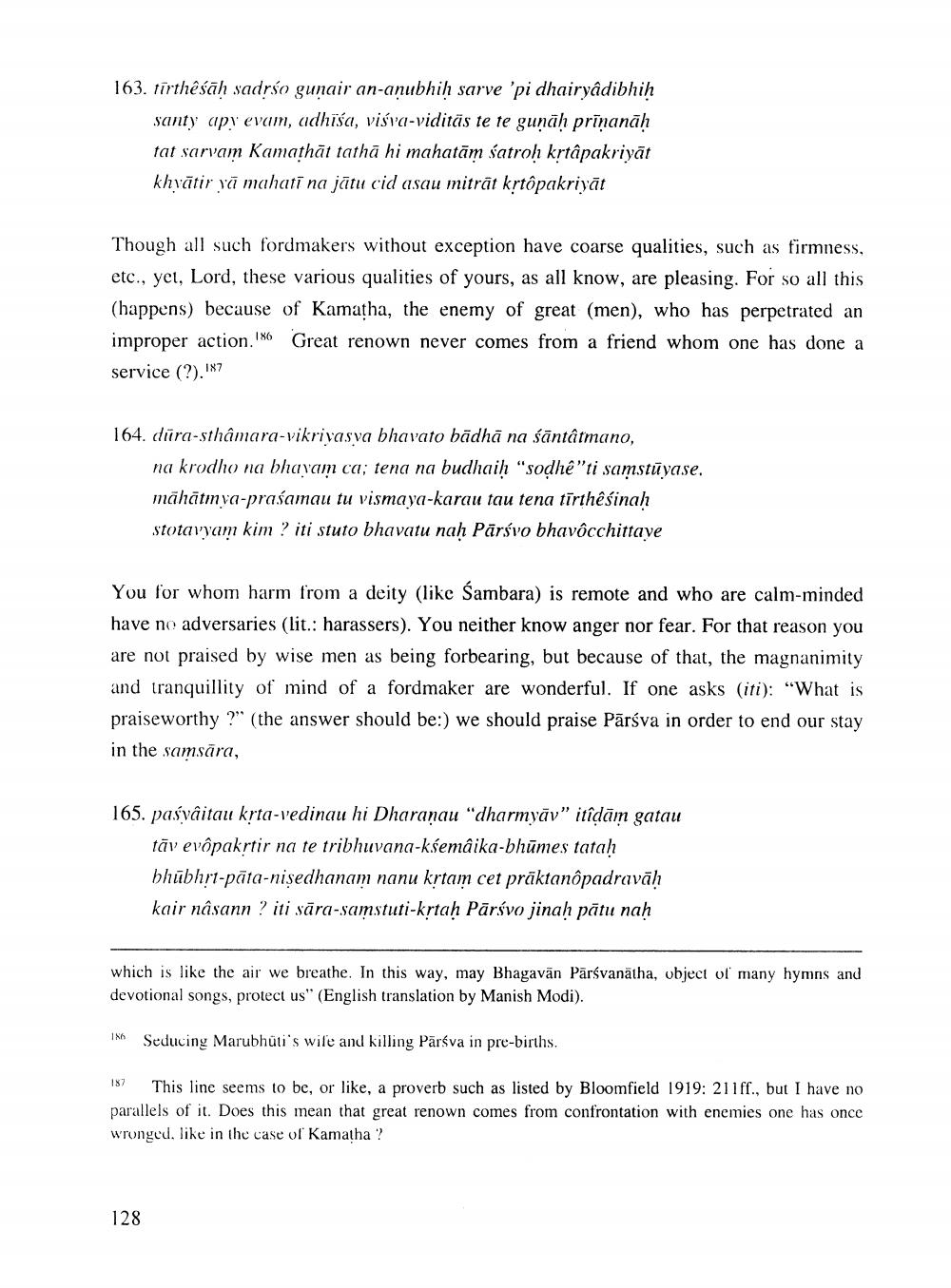________________
163. tirthêśaḥ sadrso gunair an-anubhiḥ sarve 'pi dhairyâdibhiḥ
santy apy evam, adhiša, visva-viditäs te te guṇaḥ priṇanāḥ tat sarvam Kamaṭhāt tathā hi mahatäm satroḥ kṛtâpakriyāt khyatir ya mahati na jätu cid asau miträt krtopakriyāt
Though all such fordmakers without exception have coarse qualities, such as firmness. etc., yet, Lord, these various qualities of yours, as all know, are pleasing. For so all this (happens) because of Kamatha, the enemy of great (men), who has perpetrated an improper action. 186 Great renown never comes from a friend whom one has done a service (?) 187
164. dura-sthâmara-vikrivasya bhavato badha na śäntâtmano,
na krodho na bhayam ca; tena na budhaiḥ "sodhe "ti samstuyase. mähätmya-prasamau tu vismaya-karau tau tena tīrthêśinaḥ stotavyam kim? iti stuto bhavatu naḥ Pärsvo bhavôcchittave
You for whom harm from a deity (like Śambara) is remote and who are calm-minded have no adversaries (lit.: harassers). You neither know anger nor fear. For that reason you are not praised by wise men as being forbearing, but because of that, the magnanimity. and tranquillity of mind of a fordmaker are wonderful. If one asks (iti): "What is praiseworthy ?" (the answer should be:) we should praise Pärśva in order to end our stay. in the samsara,
165. pasvaitau krta-vedinau hi Dharanau "dharmyāv" itidām gatau tāv evôpakṛtir na te tribhuvana-ksemâika-bhūmes tataḥ bhubhṛt-pata-niṣedhanam nanu kṛtam cet präktanôpadravaḥ
kair nåsann? iti sära-samstuti-kṛtaḥ Pärśvo jinaḥ pātu naḥ
which is like the air we breathe. In this way, may Bhagavan Pārsvanatha, object of many hymns and devotional songs, protect us" (English translation by Manish Modi).
186 Seducing Marubhuti's wife and killing Parsva in pre-births.
This line seems to be, or like, a proverb such as listed by Bloomfield 1919: 211ff., but I have no parallels of it. Does this mean that great renown comes from confrontation with enemies one has once wronged, like in the case of Kamatha?
187
128




